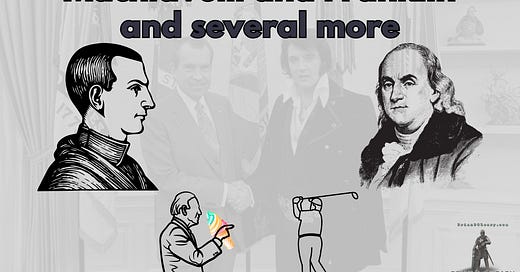Most people are at least familiar with the name Machiavelli. I studied The Prince in high school and again in university and still have the book.
I’ve been writing about power the last couple of days, and I thought I’d find my copy of the Florentine’s 16th-century treatise on power and politics, take it off the shelf, and peruse it. A few things stood ou…
Keep reading with a 7-day free trial
Subscribe to The O'Leary Review with Brian D. O'Leary to keep reading this post and get 7 days of free access to the full post archives.




